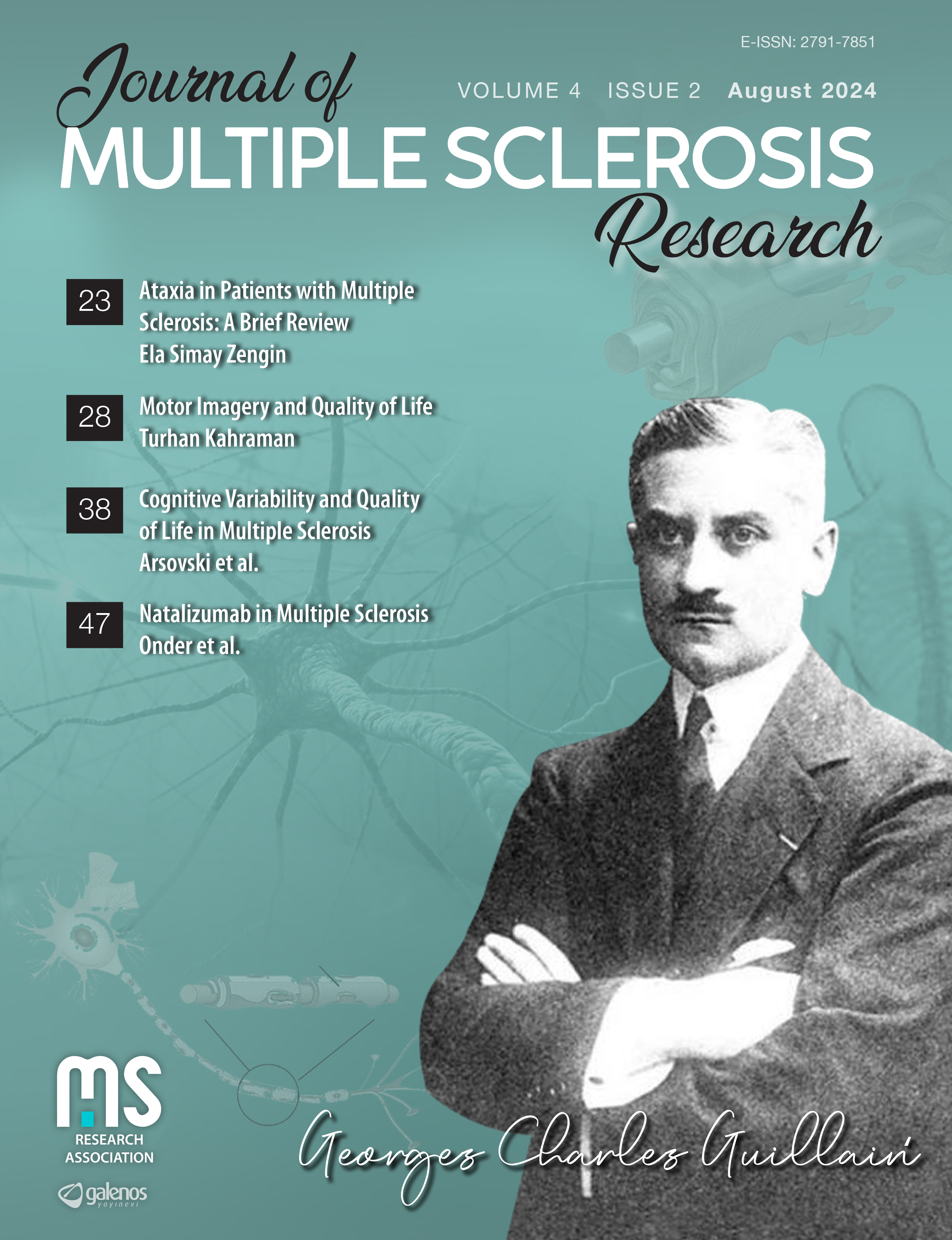Tumor Necrosis Factor-alpha Inhibitors: Can They Induce an Idiopathic Inflammatory Demyelinating Disease in the Central Nervous System?
Ahmet Kasim Kilic1, Ronay Bozyel1, Mehmet Engin Tezcan21University of Health Sciences Turkey, Kartal Dr. Lutfi Kirdar City Hospital, Clinic of Neurology, Istanbul, Turkey2University of Health Sciences Turkey, Kartal Dr. Lutfi Kirdar City Hospital, Clinic of Rheumatology, Istanbul, Turkey
INTRODUCTION: Tumor necrosis factor-α (TNF-α) inhibitors are used extensively in the treatment of inflammatory diseases in rheumatology, ophthalmology, and neurology. Despite their therapeutic benefits, inflammatory demyelinating lesions or relapses have been observed following TNF-α inhibitor use.
METHODS: Of the 295 patients who were screened, 258 were included in the study. The demographic characteristics, diagnoses, accompanying diseases, TNF-α agent(s) used, drug usage, and exposure times were recorded. The neurological symptoms and clinical visits were also documented.
RESULTS: The study included 142 females and 116 males, with a mean age of 43.82±11.81 years. Twenty-eight patients used three or more TNF-α inhibitors for an average of 72.42 months. Fifty-eight patients used two TNF-α inhibitors for 55.7 months, and 172 patients used a single TNF-α inhibitor for 45.27 months. During the follow-up, a brain magnetic resonance imaging (MRI) was obtained in 63 patients. Most of these MRIs showed asymptomatic lesions that met one Barkhof criteria and scored one on Fazekas scale for deep and periventricular white matter lesions. One patient with idiopathic uveitis exhibited symptoms of a demyelinating lesion.
DISCUSSION AND CONCLUSION: TNF-α inhibitors appear to be mostly safe with regards to the induction of inflammatory demyelinating diseases/lesions. However, patients with idiopathic uveitis may be predisposed to developing or presenting with inflammatory/demyelinating lesions of the central nervous system.
Manuscript Language: English













 Copyright © 2025 | Journal of Multiple Sclerosis Research
Copyright © 2025 | Journal of Multiple Sclerosis Research